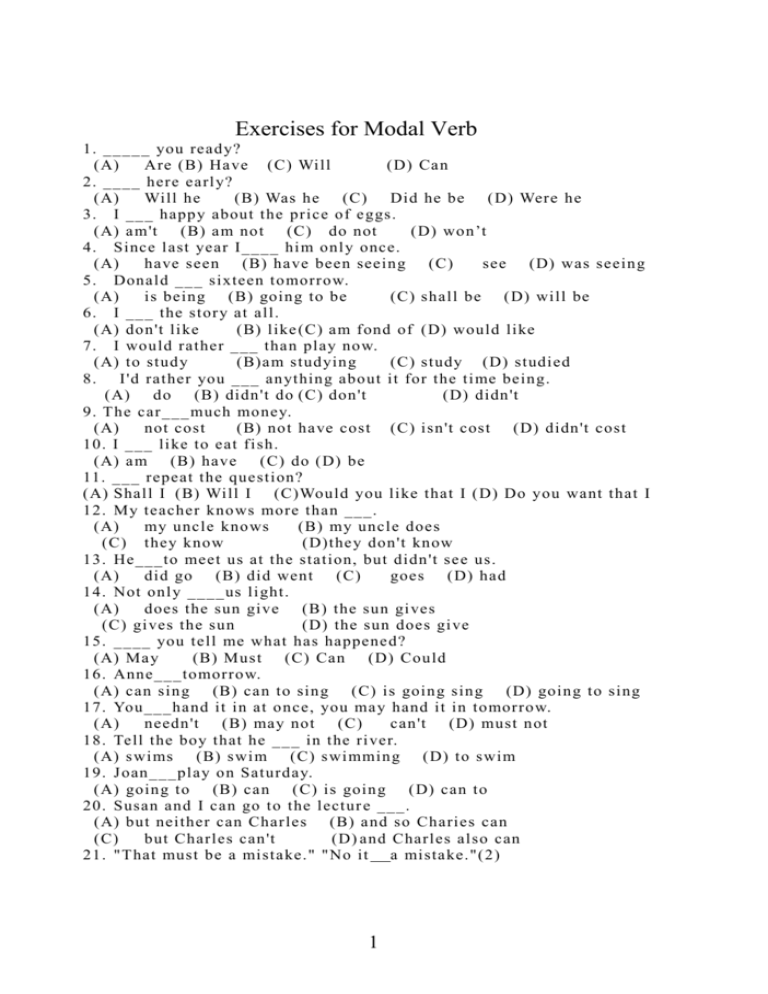

These modal verbs are mainly used for academic writing task 2. Guesses about the past/ possible but uncertain Something that is possible, but not certain General statements about the future from the past Many modal verbs have more than one meaning and are followed by the simple form of the verb. Modal verbs are the helping verbs that express ideas like a possibility, impossibility, certainty, ability, seeking permission, making requests and so on. Advanced Grammar for IELTS: Modal verbs (1): Can, Could, May, Might, Be able to – Diagnose Test, Grammar Explanation & Practice So, in this article, we will discuss some important aspects of Modal verbs. The degree of its significance, nevertheless, may differ from module to module. All four IELTS exam skills-listening, reading, writing, and speaking-require enough and acceptable grammar knowledge. 1.3 Modal verbs: Practice Exercises with answersĪlthough there isn’t a dedicated grammar component on the IELTS exam, good scores are still dependent on knowing the fundamentals of English grammar.1.2.4 Asking For And Giving /Refusing Permission.1.2.3 Arrangements, Suggestions, Offers, Etc.1.2.2 Possibility, Deduction And Speculation.1.2 Grammar Explanation: Modal verbs (1): Can, Could, May, Might, Be able to.1.1 Diagnostic Test: Modal Verbs (1): Can, Could, May, Might, Be able to.1 Advanced Grammar for IELTS: Modal verbs (1): Can, Could, May, Might, Be able to – Diagnose Test, Grammar Explanation & Practice.


 0 kommentar(er)
0 kommentar(er)
